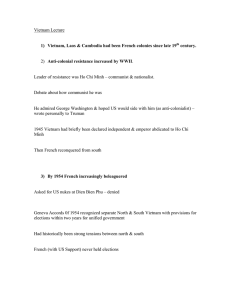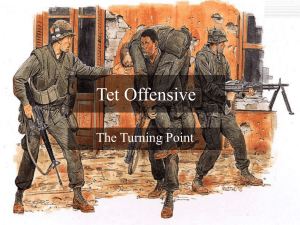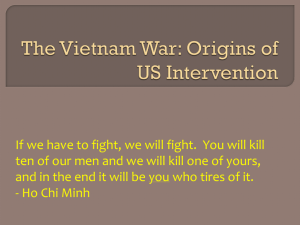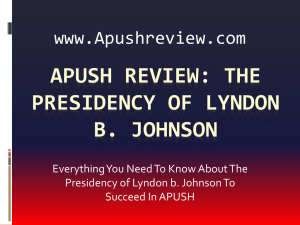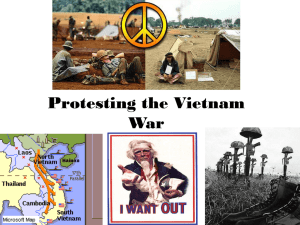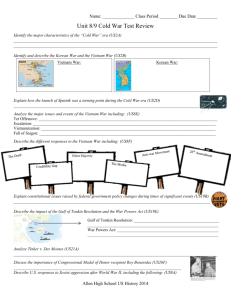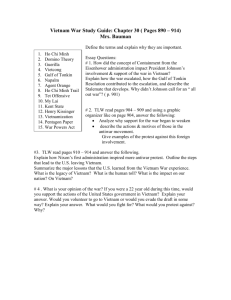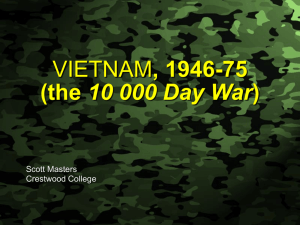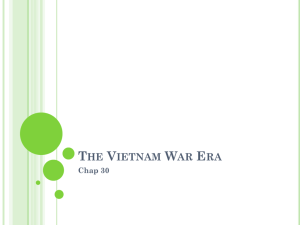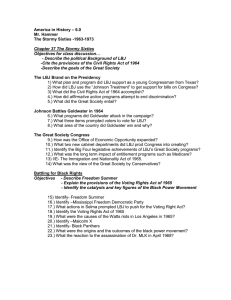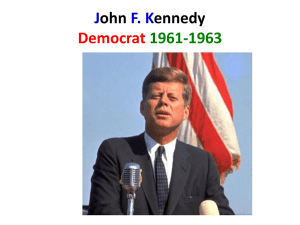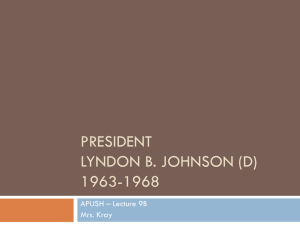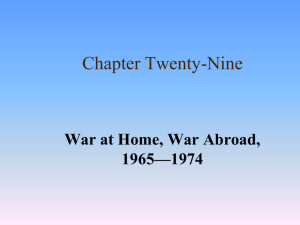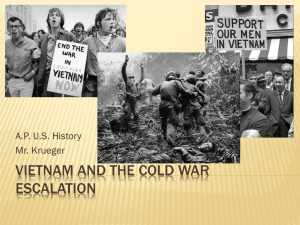Unit Test: The Great Society and the Vietnam War JFK, LBJ, and
advertisement
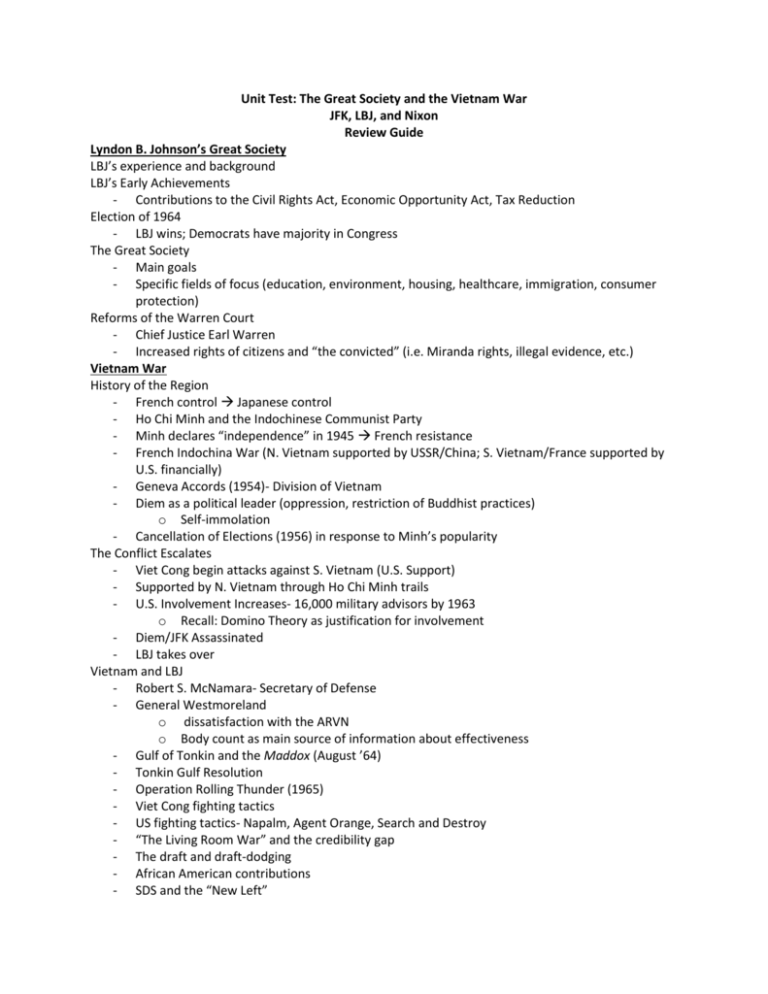
Unit Test: The Great Society and the Vietnam War JFK, LBJ, and Nixon Review Guide Lyndon B. Johnson’s Great Society LBJ’s experience and background LBJ’s Early Achievements - Contributions to the Civil Rights Act, Economic Opportunity Act, Tax Reduction Election of 1964 - LBJ wins; Democrats have majority in Congress The Great Society - Main goals - Specific fields of focus (education, environment, housing, healthcare, immigration, consumer protection) Reforms of the Warren Court - Chief Justice Earl Warren - Increased rights of citizens and “the convicted” (i.e. Miranda rights, illegal evidence, etc.) Vietnam War History of the Region - French control Japanese control - Ho Chi Minh and the Indochinese Communist Party - Minh declares “independence” in 1945 French resistance - French Indochina War (N. Vietnam supported by USSR/China; S. Vietnam/France supported by U.S. financially) - Geneva Accords (1954)- Division of Vietnam - Diem as a political leader (oppression, restriction of Buddhist practices) o Self-immolation - Cancellation of Elections (1956) in response to Minh’s popularity The Conflict Escalates - Viet Cong begin attacks against S. Vietnam (U.S. Support) - Supported by N. Vietnam through Ho Chi Minh trails - U.S. Involvement Increases- 16,000 military advisors by 1963 o Recall: Domino Theory as justification for involvement - Diem/JFK Assassinated - LBJ takes over Vietnam and LBJ - Robert S. McNamara- Secretary of Defense - General Westmoreland o dissatisfaction with the ARVN o Body count as main source of information about effectiveness - Gulf of Tonkin and the Maddox (August ’64) - Tonkin Gulf Resolution - Operation Rolling Thunder (1965) - Viet Cong fighting tactics - US fighting tactics- Napalm, Agent Orange, Search and Destroy - “The Living Room War” and the credibility gap - The draft and draft-dodging - African American contributions - SDS and the “New Left” - Anti-war protests and the divided public o Marches on D.C.; Protests in Central Park o “Eve of Destruction” vs. “Ballad of the Green Berets” McNamara’s 1967 resignation LBJ does not seek reelection Public opinion polls and the 1968 shift 1968 - Tet Offensive and its significance - Assassinations of MLK and RFK - Democratic National Convention riots in Chicago - My Lai massacre - Nixon wins election Nixon and Vietnam - “Vietnamization” - The “Secret Plan” to widen the war (bombing) vs. decrease in troops o Including Cambodia - Protests on college campuses (Kent State; Columbia) - Repeal of Tonkin Gulf Resolution (1970) - Pentagon Papers (1971) - Nixon’s re-election - Cease-fire in 1973 - Fall of Saigon in 1975 - The toll of the war (deaths, shift in mentality of public/government towards foreign affairs) - “War Powers Act” Watergate - Nixon resigns (first ever) - Ford pardons Enduring Understandings and Important Concepts Why were the N. Vietnamese and Viet Cong tactics effective in the fact of US aggression? How did the events of 1968 impact the war effort? What role did the media play during the conflict in Vietnam? Was the escalation of involvement in Vietnam justifiable? What was the legacy of the war? How did it change the United States?
